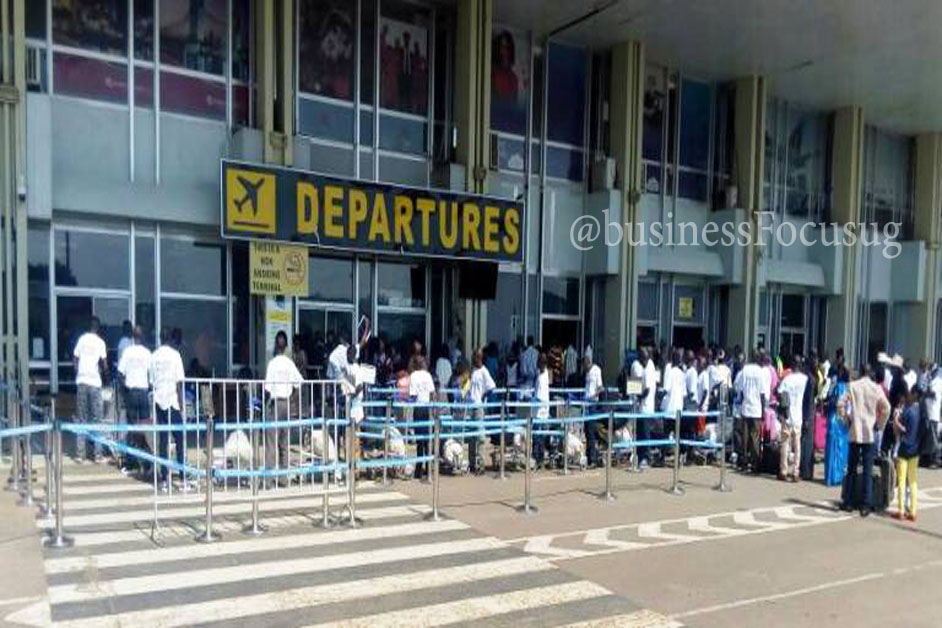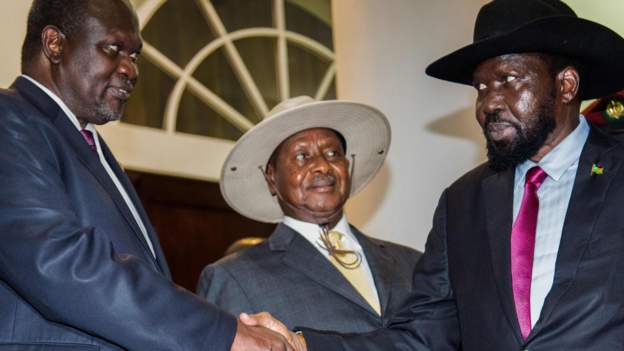Hundreds of Uganda leave the country for jobs abroad daily
Not all Ugandans who seek jobs in Dubai and other Middle East countries are blessed! Thousands of them are cursing the day the decided to leave Uganda for ‘greener pastures.
At least over 3,000 Ugandan women are trapped in the Al Awil Prison and no Ugandan authority has paid a visit to the facility despite the consulate being a 10-minute walk, the Kyadondo East MP, Muwada Nkuyinji, has revealed.
The lawmaker, who doubles as Shadow Foreign Affairs Minister, made the revelation while addressing journalists at Parliament, following his oversight visit to United Arab Emirates and Dubai in particular.
He said that during his interaction with the prisoners who were mostly women, they admitted that they were arrested by Immigration Police while some handed themselves over to the authorities after information emerged that the UAE Government would facilitate their repatriation back to Uganda.
“The number of Ugandans detained in AL AWIR prison is estimated at above 3,000 but only hundreds of these were arrested while still having valid Uganda passports. Majority of the detainees are girls and women. Inside the prison, I found Ugandans detained in different huge walls and each hall/cell was housing between 350 to 400 Ugandans. Upon interaction with the detained, I learnt that they had been detained for a long time and the Dubai consulate had not visited them,” said Muwada.
His remarks were in response to a statement issued by Betty Amongi, Minister of Gender, Labor and Social Development who announced that over 450 Ugandans stranded in the Middle East are set to be deported, with many of these being victims of human trafficking.
However, Muwada scoffed at the Minister’s pronouncement arguing that the Ugandans set to be deported are holders of the Ugandan passports yet the most vulnerable groups of people trapped in Middle East had their passports or travel documents confiscated by the people who facilitated their travel abroad.
As such, he has asked Government to waive the Shs250,000 charged to acquire an emergency travel document, saying the cost is too high for this vulnerable group, noting that the lack of travel documents has left these Ugandans stateless.
It should be recalled that in 2021, Parliament considered the Anti-Slavery Bill 2020 that had been tabled by Herbert Ariko (former Soroti Municipality) MP that sought to enact a consolidated law on external labour industry in Uganda.
In Clause 25 of the Anti-Slavery Bill 2020, Ariko proposed a 10year jail sentence for a person who confiscates, withholds, or possesses another person’s travel or identity document if the confiscation of the travel document is done unlawfully or lawfully but without legal justification or the confiscation makes the person whose documents are confiscated, unable to legally leave the country and return to Uganda.
The proposed bill also sought to criminalise the act of forceful holding of a person illegally stay in a foreign country or breach immigration laws and make the victim displaced or socially or linguistically isolated then it would amount to a criminality.
Further in Clause 26, the bill sought to criminalise the actions of unlawfully destroying another person’s travel or identity document and if found guilty, the culprit was liable on conviction to imprisonment for ten years. However, the Labour Recruitment Agencies rejected the bill, describing it as redundant and mere repetition of the other existing laws in Uganda.
The Anti-Slavery Bill 2020 was one of the bills thrown out of Parliament by former Speaker Jacob Oulanyah, when he ordered the administration of Parliament to wipe clean and delete from the records, all the bills that were handled by the 10th Parliament and weren’t disposed off before the inception of the 11th Parliament.
Oulanyah said that all the business of the 10th parliament lapsed with the end of term of the 10th parliament, and any Government entity or MPs that had pending bills have to go through the ordeal of reintroducing the bills and that bill or motion would start with date of introduction in the 11th Parliament.
According to the Global Estimates of Modern Slavery report in September 2017, on any given day in 2016, 40.3 million people were victims of modern slavery, with 24.9 million people in forced labour and 15.4 million people in forced marriage.
Out of the 24.9 million people trapped in forced labour, 16 million people are exploited in the private sector (domestic work, construction or agriculture); 4.8 million persons in forced sexual exploitation, and 4 million persons in forced labour imposed by state authorities.
Women and girls are disproportionately affected by forced labour, accounting for 99% of victims in the commercial sex industry, and 58% in other sectors.





